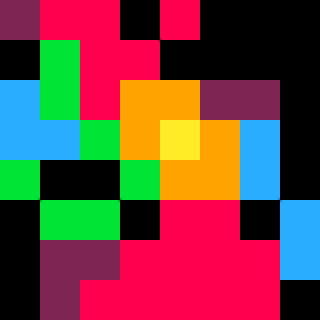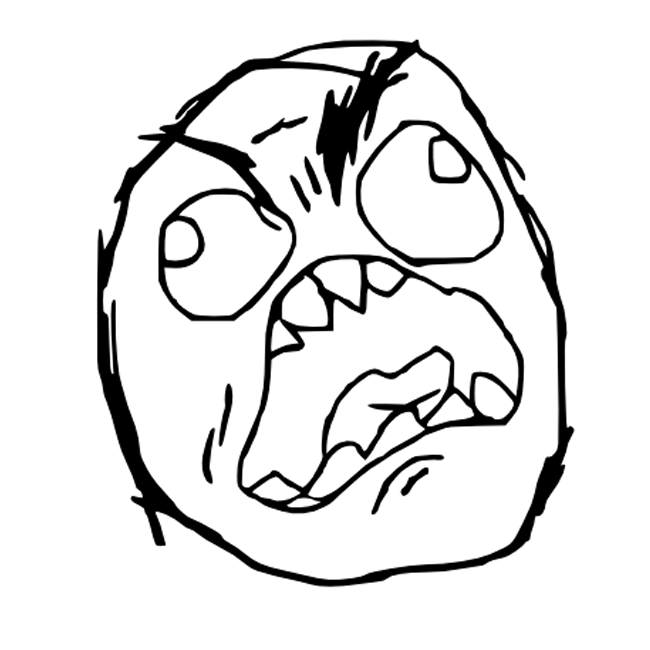DISCLAIMER: This isn't a replacement or a diversion from my ongoing projects. I'm at sound design and update functions on many of those now (trickling away little by little); this is either aimed toward a future project, or a thing you can just take on yourself should you choose to.
But in this thread!
I'd like to toss around some ideas for a modular "escape room" cart. Ways to use stuff like creative recursion, math and word and logic puzzles and so forth to make a dynamic mystery adventure that's really just layers of solving things; but concise enough to fit in a PICO-cart.
If you've never done an escape room before, or have played anything like the Zero Escape games: An escape room consists of a network of intermingled puzzles and clues... so that the solution to one puzzle results in acquiring information or items that are then used to solve additional puzzles. Typically there are 3-5 "layers" of these puzzles of varying breadth - with each "layer" consisting of 1-4 types of puzzles - and then later layers of puzzles can reuse elements of the earlier puzzles in new and different ways - or the rewards for solving those puzzles can.
https://lockpaperscissors.co/craft-1st-escape-room
Integrating this into PICO-8 in a modular fashion is the part that may make or break this. Clearly, it'll have to use a distinct set of puzzle types that are fun to play in PICO's controls and scope; as well as code/hint generation tools... then having some cohesive theme and plot generation in play. It might also be possible to integrate some basic-stripped versions of typical video game play as part of the excitement!
There's also the choice to make this (primarily) sidescrolling, top-down-adventure interactive, or menu-driven. Each comes with upsides and tradeoffs, and there's no reason each one couldn't work nicely.
So... let's spitball! What kinds of puzzles, themes, and approaches do you think would be best for this kind of project? Do you think making a "video gamey" version of this could do something unique?

Great idea.
I've had the idea of making a procedural-generated (so every play-through is different) "Escape The Room" game for a few years now, but I'm never gonna get'round to coding it.
Either way, would be cool to see things like this done in PICO-8. Good luck! :D

Liquidream: Tell me about some of the things in your design docs! If you've had this burning for awhile, I know there's good seeds there.

I've never played one of these virtually or in person, but the idea certainly sounds like it would be fun. I'd imagine that either you'd have to keep the token count of the individual puzzle types pretty low or perhaps use that new feature of linking cartridges together on the BBS, which would be really cool.

Well, so far I jotted down a structural premise. Granted, some of these can be made "nil" for a lack of predictability in context; but it breaks up pretty cleanly into 5 acts. But bear in mind, I'm beginning at the "WIN" point and reverse-engineering scenarios to the "START" and not the other way around. Therefore, it may make more sense to read this chart from bottom to top, first.
Legend:
J = Juxtaposition (this could be a puzzle, or a gameplay element - and this may include Key/Locks as a solution set)
K = Key
L = Lock
Act 5:
WIN = J1 = (L1 + L2 + L3 + L4 + L5) and/or
WIN = J1 = (L12 + L2 + L3 + L4 + L5)
Act 4:
L1 > J2 > K2
L1 > J3 > K3
L1 > L2 > J4 > K4
L1 > L3 > J5 > K5
Act 3 (a major thing):
L6 > J6 = (L7 + L8 + L9) > K1
Act 2:
L12 > J7 > K6 + K10
L12 > J8 > K7 + K11
L12 > L10 > J9 > K8
L12 > L11 > J10 > K9
Act 1:
START > J11 > K12*
*K12 can be K12 + K13; and L12 can be split to L12 + L13 too; but that may just be busywork?
So this simply boils down to what we define as juxtapositions, keys, and locks, now... it could be minimalist video games, minigames, or some basic puzzle types, codebreaking and logic, maze generators, etc.

TonyTheTGR:
Nah, you've already given this way more thought than I ever did. I was just thinking of generating puzzles by working backwards. Never thought to have them in stages/acts.
Again, will watch this with much interest! :D

A simple code enumerator - a thing that makes a series for 4-digit strings - is probably pretty foundational. But there's so much we can do with it too! Equate the (correct) numerical values to letters to make keywords! Use with spritework for symbology!
In fact... I was actually considering doing 4-digit hex with the symbology and then making complimentary pairs that were opposites - so checking for an "equal" value constitutes a match, but also checking for a sum of 16 would constitute a pair of opposites as well...
Some kind of colorizable collectible token sets could be a thing as well; and then maybe a small set of Zelda-like tools that could be found (or constructed?) and used around the scenario.
The main thing I wanted to do differently with this is have the player control a character in the scene, like a top-down adventure/RPG or platformer game rather than just poking at stuff.
Another idea that came across was a Sudoku/Tetris hybrid... the game generates a 6x6 Sudoku solution set, and then breaks up the playfield into tetrads/tetronimoes. It locks 1-4 of these in place and then you place the others. We only really need two "solution matricies," because they can be flipped and rotated for a total of 16 iterations - and then we can shuffle the numerical values of the variables because the switching of any relative numbers will still generate a "solution" regardless of what order they appear in.
I think I want to have mini-game high score quests that factor in too for unlocking tools or hints/codebreaking solutions. And the colors are already inherently hex-numerical in nature; so that's kind of a given already as well.
spitballing continues
Now making logic-matrix puzzles, on the other hand? That can be tough. For example, the "truthers tell only the truth and the liars tell only lies" that give relative information to the puzzle at hand and an opinion of who's a truther or liar; or Clue-like cross-referencing of a multiple-victim murder with causes and places of death... that's a bit more meaty. How would a thing like that be structured?
Maybe nods to old game shows, like The Price Is Right minigames or Classic Concentration? Symbology that's friendly and flexible with making rebus puzzles?
[Please log in to post a comment]






